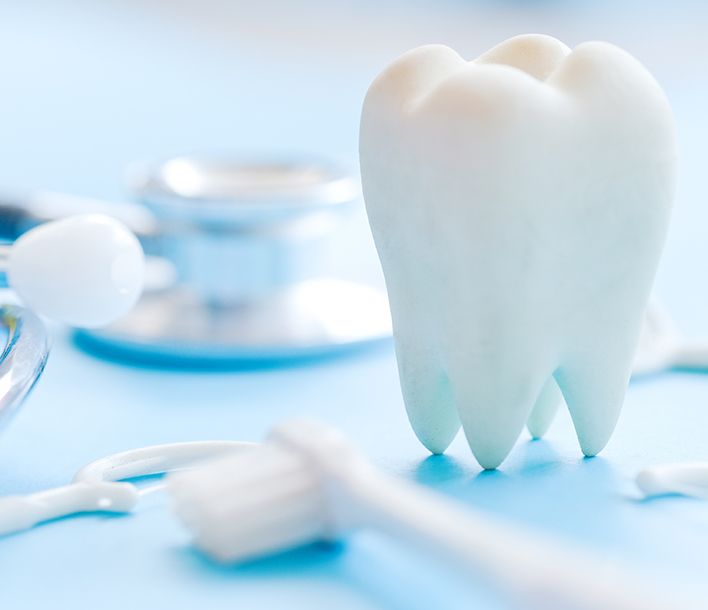Cracked Tooth Repair Services in Bolton
Do you have a cracked tooth? Don't fret! At Dentistry in Bolton, we can help repair your tooth.
What is a Cracked Tooth?
Cracked and fractured teeth are common dental problems. There are many reasons why teeth may crack, such as biting on hard objects, trauma, grinding, and clenching of teeth. All of these behaviors place the teeth under extra strain and render them more susceptible to cracking. And because people are keeping their teeth longer (thanks, in part, to advances in dental technology!), the likelihood of cracked teeth increases.
When tooth enamel is cracked, you can experience pain. When a tooth is cracked, the pulp and inner workings of the tooth are exposed, and painful irritation can occur. It may not hurt if you aren't using the tooth, but as soon as you bite down or put pressure on the tooth, the crack opens and the pain comes back. As pressure is released again, the two parts of the crack fuse back together and pain subsides.
If left untreated, the pulp can become irreversibly damaged and constantly painful. The resulting pulp infection can affect the bone and soft tissue surrounding the tooth. That's why it's important to see a dentist if you suspect you have a cracked tooth.

Symptoms of a cracked tooth may include:
- Unexplained pain when eating
- Sensitivity to warm and cold foods
- Pain with no obvious cause
- Difficulty pinpointing the location of the pain
What kind of cracks can affect the teeth?
The specific type of crack will determine what type of treatment is viable. In cases where the crack is not too deep, root canal therapy can be performed, and the tooth can be repaired. In other situations, the tooth is too badly damaged and requires extraction.
Here is a brief overview of some of the most common types of cracks:
- Crazes
These are scratches on the surface of the teeth, and are considered by most dentists to be a normal part of the tooth anatomy. A craze rarely requires treatment for health reasons, but a wide variety of cosmetic treatments can be performed to reduce the negative aesthetic impact.
- Oblique Supragingival Cracks
These cracks only affect the crown of the tooth and do not extend below the gum line. Usually, the affected part of the tooth will eventually break off. Little pain will result, because the tooth pulp (that contains the nerves and vessels) will remain unaffected.
- Oblique Subgingival Cracks
These cracks extend beyond the gum line and often beyond where the jawbone begins. When a piece breaks off, it will usually remain attached until the dentist removes it. Oblique subgingival cracks are painful and may require a combination of periodontal surgery and endodontic treatment to place a crown or other restorative device.
- Vertical Furcation Cracks
These cracks occur when the roots of the tooth separate. This type of crack almost always affects the nerve of the tooth. Because the tooth will not generally separate completely, root canal therapy and a crown can usually save the tooth.
- Oblique Root Cracks
These cracks tend not to affect the surface of the tooth at all. In fact, the damage is only apparent below the gum line and usually below the jawbone. Root canal therapy may be possible, depending on how close the fracture is to the tooth surface. However, extraction is almost always the only option after sustaining this classification of fracture.
- Vertical Apical Root Cracks
These cracks occur at the apex (tip of the root). Though the tooth does not require extraction from a dental perspective, many patients request an extraction because of the high degree of pain. Root canal therapy alleviates the discomfort for a while, but most often, teeth affected by such cracks are eventually extracted.
When the crack is too severe for the tooth to be saved, the dentist will perform an extraction. There are a number of restorative options in this case, such as bridges, dental implants and partial dentures. All of these structures can help restore biting, chewing, and speaking functions.
